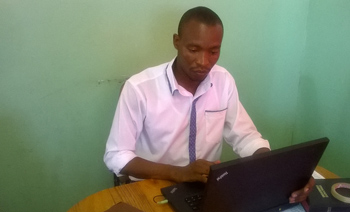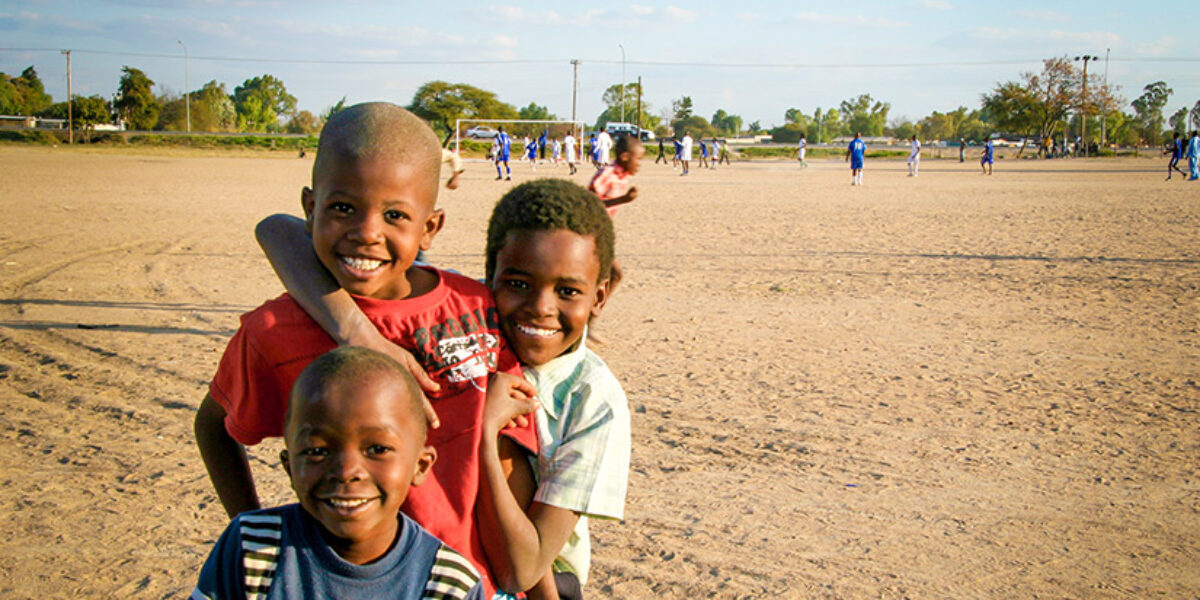When the Kalanga people, who live in the Kalahari Basin in Botswana, open their Bible, more than half of it is missing. With only the New Testament available in their heart language, this community of 150,000 people has access to the story of Jesus, but not the story of the prophets. They have the resurrection account, but not the Exodus account. They know the Sermon on the Mount, but not the Ten Commandments.

But recently, these gaps in their Bible have begun to disappear. With support from American Bible Society’s financial partners, a team of Bible translators has spent the past six years translating the Kalanga Old Testament. The project is slated for completion later this year, but the team has already translated and distributed Genesis and Leviticus, giving the Kalanga people access to Old Testament teachings for the first time. As they have engaged with these books, the Kalanga people have experienced a community-wide transformation.
“These two books were carefully selected by local churches,” says American Bible Society’s Senior Manager for Mission Global Rhoda Gathoga. “Genesis provides the foundational stories of the Bible, starting with creation. Leviticus helps churches learn what is morally right and wrong according to God’s law.”
Gathoga visited the Kalanga translation project in March of 2016 and saw God’s Word bearing fruit. “These Scripture Portions are already impacting the church communities,” she says. “For example, with a better understanding of false prophets in the Bible, churches have been more careful in
their selection of new spiritual leaders.”
But for Kalanga translators, completing these two books of the Bible was no small feat. It required state-of-the-art software and extensive training from a translation coach, who worked with the team throughout the process.
“[The consultant] trained our translators very well, even in Hebrew and Greek,” says Alec Utilwang, secretary of the advisory board for the Kalanga translation. Once the translations of Genesis and Leviticus were completed, church and community members pitched in to review the text, ensuring that a clear translation emerged.
“We want to use the Bible as the mode of transformation in our communities.”
– SONNY ADAM CHILIWA, KALANGA TRANSLATION TEAM
“We have different teams of reviewers, from village teams [to] church groups [to] young people,” says Bishop Moses Mputshana of the Kalanga Church of Christ. “To me personally, the translation project has made me a better leader…since I now understand what the Bible says and can express myself fully in my own language.”
But as Mputshana admits, he isn’t the only one benefiting from the Kalanga Old Testament; his community is changing, too. He says that the books of Genesis and Leviticus have inspired Kalanga speakers to abandon the practice of marrying multiple spouses.
“While [polygamy] is not eradicated, the issue of multiple partners and unfaithfulness has reduced,” Mputshana says.
Another member of the Kalanga review team, Sonny Adam Chiliwa, hopes that God’s Word will help people turn from criminal behavior. “We want to use the Bible as the mode of transformation in our communities,” he says. “The Bible can help people both grow in their faith and change their behavior.”
As Chiliwa, Utilwang and Mputshana wait for the completion of the Kalanga Old Testament, they will lean on Genesis and Leviticus for wisdom. But they can’t wait for the quickly approaching day when their people will engage with every story in the Bible—from Genesis to Revelation.





